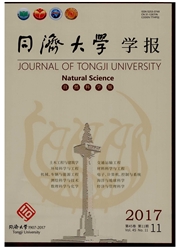

 中文摘要:
中文摘要:
围绕城市地下空间开发的功能,通过“有无对比法”和“地上地下对比法”,探讨城市地下空间开发的社会和环境效益,提出一种定量化效益评价模型.结果表明:城市地下空间开发对城市发展促进作用明显;节约土地效益占总效益的比例最大,其次为节约时间效益;节约土地、减少空气污染、减少噪声污染等效益为地下空间开发的溢出效益,这些效益可以通过税收等手段进行内部化,并可作为城市公共地下空间建设的融资手段和决策依据.
 英文摘要:
英文摘要:
Social and environmental benefits are discussed in terms of underground space services and a quantitative evaluation model for the benefit of urban underground space development is proposed through " with and without comparison method" and "aboveground and underground comparison method". The research results show that the role of urban underground space development in promoting the development of the city is significant, and the land conservation benefits account for the largest proportion of total benefit, followed by saving time benefits. In addition, the spillover effect of underground space development, such as the conservation of land efficiency, air pollution reduction, noise pollution-reduction and other benefits, can be internalized through tax, which can act as financing means and decision-making basis for the public underground space development.
 同期刊论文项目
同期刊论文项目
 同项目期刊论文
同项目期刊论文
 期刊信息
期刊信息
